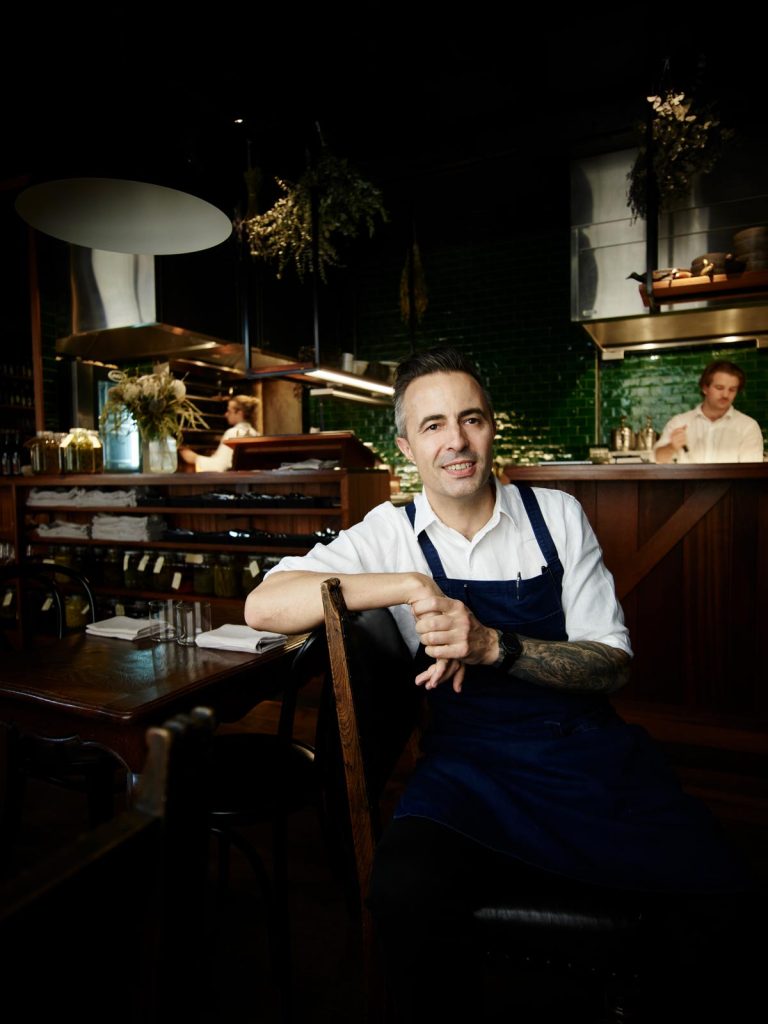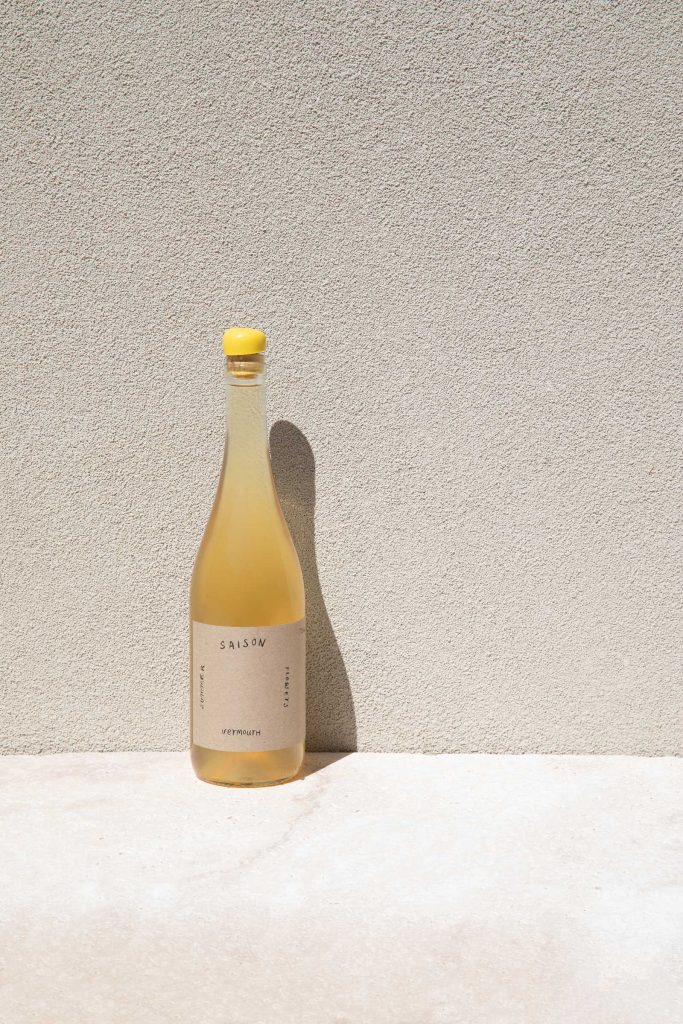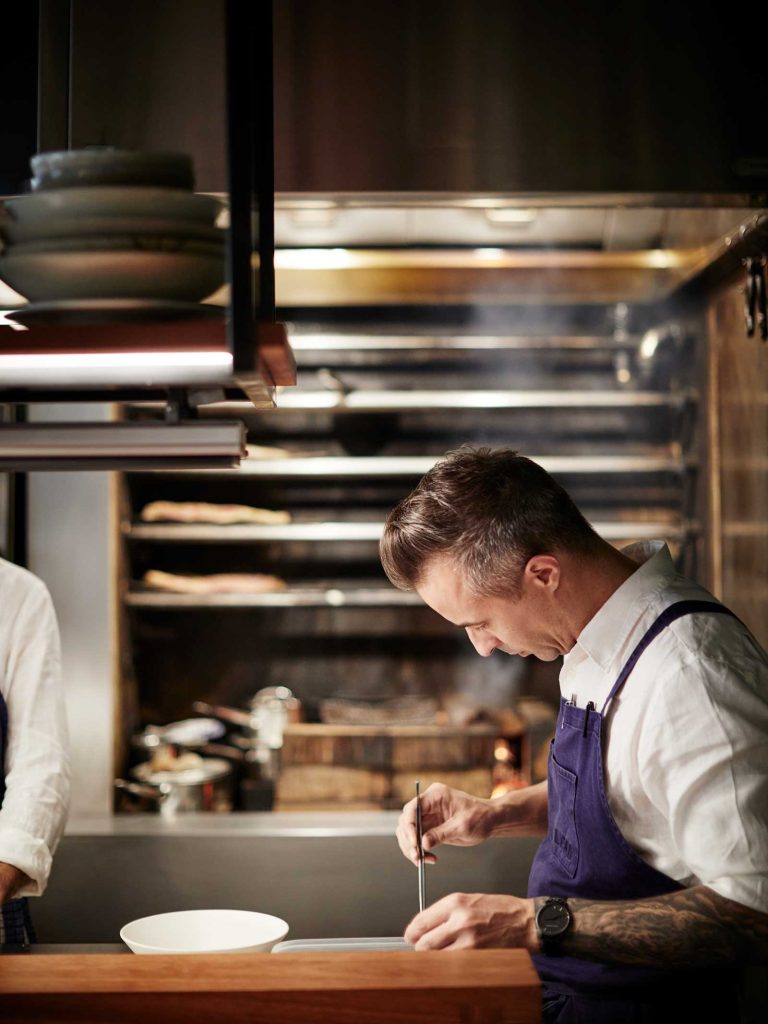
Young Gun: Dave Verheul, winemaker
Kiwi chef and winemaker Dave Verheul entered the world of vermouth because he wanted to understand more about the complex flavours of the style. Journalist Harrison Davies spoke with him about how a small project to create drinks that would pair with his food at Melbourne wine bar Embla became a lauded label of small batch vermouth.
Humble beginnings
Dave Verheul’s career has been one of following inspiration and responding to opportunity. He started his career at 14 as a professional skateboarder and snowboarder in New Zealand. He then had to find a new avenue following an injury at 22.
Verhuel started a degree in psychology and quickly found himself uninterested in the scholar’s life, instead finding joy cooking for his friends and eventually deciding to partake a career in the kitchen.
Following were stints at the internationally acclaimed Savoy Grill in London and the cult-favourite The Town Mouse in Melbourne.
Verhuel teamed up with fellow Town Mouse alum Christian McCabe to open Embla – where he currently wears the hat of chef.
During his tenure at the wine bars, Verheul found himself overcome with ideas to explore the bitter and intense flavours of vermouth and decided to put something together to serve with his food.
He began experimenting with earthy flavours of vermouth in 2016 and found that the same ideas of seasonality and natural flavours had a lot of crossover with his menu.
Then everything changed. Strict COVID restrictions in Melbourne lead to the temporary closure of Embla and sister restaurant, Lesa.
All of the sudden Verheul had a lot of time on his hands to switch hats from chef to winemaker. A switch that saw him nominated at the 2021 Young Gun of Wine Awards.
“I would have to admit that I would never ever say that I’m a winemaker. I think my skillset draws from the 20 plus years I’ve spent working with food and my understanding of flavour,” he said.
“That said, I have learnt and continue to learn so much when it comes to alcohol, flavour extraction and ageing.
“I began making vermouth years ago with the intent of matching it to particular dishes in the restaurant. This very quickly aligned with the way I approach food; I like clear, vibrant flavours derived from produce that has been grown in the most natural way and by the best people.”
Saison is born
Saison is the French word for season and seasonality guides each variety of vermouth produced by Verheul.
Earthy, rich tones define his first winter release from 2020, entitled Fallen Quinces, whilst aromatic, floral notes champion the lighter Summer Flowers, released in 2021.
Saison was quickly recognised for its unorthodox flavours and as a unique take on a style that seldom saw innovation.
It focuses on singular, organically produced and locally sourced flavours that emphasise and highlight the season they were made.
Verheul’s first run of Fallen Quinces used Victorian Moscato berries due to their high sugar content, which could help to balance the more bitter and earthy notes of the quince and other aromatics.
He matched the Moscato grapes with pineapple quinces charred in the Embla wood fire oven alongside rhubarb root, dried jasmine, smoked blood orange zest and saffron.
This year’s Summer flowers serves as a summery companion to the richer Fallen Quinces and it features flavours of apricots, elderflower and dried jasmine.
Dave began his career as a professional skateboarder and snowboarder before handing in his knee guards at 22.

Verheul said that having vermouths that could match the season in flavour more than just colour was a way to explore different aromatics and balance.
“I wanted a wine that spoke of the warmth of the sun, had fruit and floral notes,” he said.
“I really just try to put forward flavours that make sense to me and that suit the season it will be released in.
“We make infusions in high quality grape spirit using the best possible produce at the peak of its season.
“We then blend these into our wine of choice, add in the necessary wormwood for bitterness, balance the bitterness with a little sugar then age it until it is ready.
“All of the ingredients that each batch heroes I have used throughout my kitchens in the past, and are flavours I feel like drinkers will find interesting and delicious.
“From there I just try to not mess around with it too much.”
Verheul also highlighted the idea of exploring vermouth in an Australian context and trying old styles with a new twist.
He was fascinated in using vermouth medicinally, as it was once used to treat intestinal health and depression amongst other things.
He wanted to explore how the traditionally rich flavour notes could be reconceptualised in a new world way.
“I think what’s sets this vermouth apart from most European producers is that we don’t use any caramel or any spices, and that we try to keep things as fresh as possible,” said Verheul.
“We are incredibly lucky in Australia. We have a new world kind of freedom when it comes to breaking from tradition and that really is evident when it comes to things like wine, vermouth and food.
“I don’t know that this is particularly Australian as we don’t use any natives either. I think what is Australian about it is that it’s a different take on the classic vermouth category like so many others are doing here right now.
“The great thing about not having ‘the way it always has been done’ hanging over our heads is that once we’ve all been through our ‘teenage years’ phase this freedom tends to mature into something really special and unique.”
What’s next?
Verheul and Saison are now in an interesting place.
Mirroring the seasons and exploring flavours that will complement them is what defines his work as a chef and now as a winemaker – and his upcoming ‘black walnut’ vermouth embodies his commitment to herbal, seasonal flavours.

Dave uses the same ideas of seasonal flavours in his vermouth that he uses when creating his menu at Embla.
Cheers to that!
“The black walnut has been an incredibly fun flavour to work through. This vermouth is based on an old Spanish technique of staining vermouths dark with unripe green walnuts,” said Verheul
“I wanted to make vermouth that was darker but still didn’t rely on caramelised sugar like most European vermouths do.
“For this vermouth, the unripe walnuts are supported by dried cumquats, fresh chamomile and a koji made from roasted barley, reminiscent of a love child between a bay leaf, walnut and a wormwood bush.”
His baby, born from the world of pandemic restrictions, is now loose in a world returning to a new sense of normalcy, a world where his title now includes the word ‘winemaker’. Verheul looks wistfully at the months ahead and shrugs his shoulders.
“Who knows what the future holds! The plan currently is to have two to three mainstays through the year and then to keep running through some new seasonal batches to keep things interesting,” he said.
“The response has been fantastic so far, and our customers at the restaurant have very much come to expect that it’s on
the pour.”
This post was originally featured in the December 2021 issue of the Grapegrower & Winemaker.
To read more articles like this, subscribe online here.